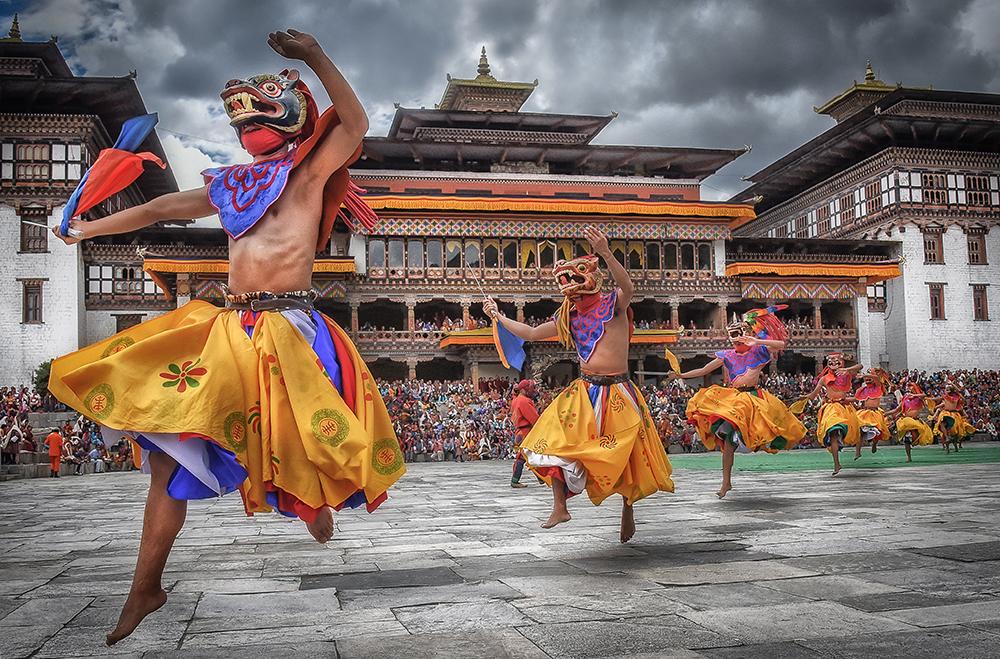

Bhutan, known for its picturesque landscapes and rich cultural heritage, has become a unique destination for travelers seeking solace and spiritual enrichment. The Tourism industry in Bhutan took a distinctive path with the introduction of its policy on "High Value, Low Impact" tourism in 1974. This policy aimed to minimize the impact of tourism on the country's pristine environment and its vibrant culture. The kingdom opened its doors to foreign visitors with the establishment of the Department of Tourism in collaboration with the National Airline, Druk Air. Ever since the commencement of tourism in Bhutan, the emphasis has been on promoting responsible travel and cultural preservation.
Tourism in Bhutan has been carefully managed with the goal of protecting the nation's cultural traditions and natural environment. The unique approach of controlling the volume and type of tourism through mandatory minimum daily spends and guided tours has helped maintain its exclusivity and integrity. In 1991, the privatization of the tourism sector further facilitated growth, enabling the development of a range of hotels and tour operations that adhere strictly to the national policy. This has allowed Bhutan to develop its tourism sector sustainably, making tourism an important source of revenue and employment.
One of the most significant events in the Bhutanese calendar is the Thimphu Tshechu Festival. The festival is not only a religious event but also a social gathering and a time for the Bhutanese to rejoice and celebrate their cultural identity. Instituted in the 17th century by the fourth temporal ruler of Bhutan, Gyalse Tenzin Rabgay, the festival has religious and historical significance. Thimphu Tshechu is held annually in the capital city of Thimphu and is one of the most vibrant and popular festivals in the kingdom.
During the festival, locals and tourists alike gather at the Tashichho Dzong, a fortress and Buddhist monastery, to witness the masked dances, known as 'cham,' and to receive blessings. The dances are believed to confer merit on the observers and to teach them about the Buddhist dharma. Each aspect of the festival, from the elaborate costumes to the detailed choreography, tells a story deeply rooted in Bhutanese culture.
In recent years, Bhutan has seen a shift in tourism trends. With the global travel landscape changing, Bhutan continues to embrace its philosophy of sustainable tourism. There has been a growing interest in experiences that allow for deeper cultural immersion and understanding. Tourists are leaning towards personalized tours, village homestays, trekking in less explored regions, and engaging in local community projects. Bhutan's approach to tourism, with a strong emphasis on conservation and cultural preservation, positions it well in the current global trend of responsible and ethical tourism.
Furthermore, Bhutan was the first nation in the world to declare a policy to maintain a carbon-neutral environment. As climate change becomes a global concern, this green image has attracted tourists who are conscious of their environmental footprint and are looking for sustainable travel destinations. Recognizing the potential, Bhutan continues to innovate in ecotourism and environmentally-friendly practices.
In conclusion, the history and ongoing evolution of tourism in Bhutan, punctuated by events like the Thimphu Tshechu Festival, continue to make it a unique travel destination. Bhutan's dedication to maintaining its cultural and environmental integrity stands as a model of sustainable tourism for the world.